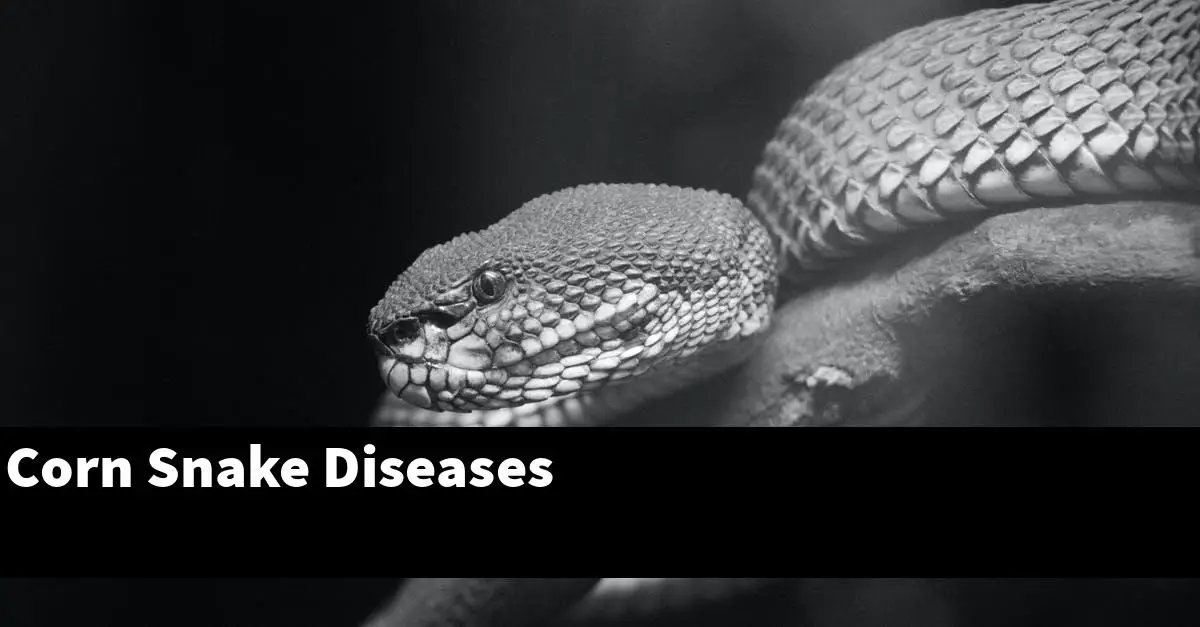There are several common corn snake diseases, including mouth rot, respiratory infections, and parasites.
Table of Contents
What are some common diseases that corn snakes can get?
There are a few common diseases that corn snakes can get.
- One is scale rot, which is an infection of the skin. It can be caused by bacteria or fungus, and it can lead to the death of the snake if left untreated.
- Another common disease is respiratory infections, which can be caused by a variety of bacteria and viruses. These can be deadly if not treated quickly.
- Finally, corn snakes can also get parasites, such as worms and mites. These can cause a variety of health problems and can be difficult to get rid of.
What are some of the symptoms of these diseases?
The symptoms of these diseases can vary depending on the specific disease, but there are some general symptoms that are common among them.
These include fatigue, fever, weight loss, and muscle aches. Additionally, some of these diseases may cause skin rashes, mouth sores, and swollen lymph nodes.
How can you prevent your corn snake from getting sick?
There are a few things you can do to prevent your corn snake from getting sick.
- First, make sure to provide your snake with a clean and spacious enclosure. This means cleaning the enclosure regularly and providing your snake with plenty of hiding places, branches, and other objects to climb on.
- Second, feed your corn snake a nutritious diet of live prey items. This will help ensure that your snake stays healthy and does not become malnourished.
- Third, take your corn snake to the vet for regular check-ups. This will help catch any potential health problems early and allow you to treat them before they become serious.
By following these simple tips, you can help prevent your corn snake from becoming sick and ensure that it enjoys a long and healthy life.
If your corn snake does get sick, what are some treatment options?
If your corn snake does get sick, there are a few treatment options available.
First, you can take your snake to the vet for a check-up and get a diagnosis. Once you know what is wrong with your snake, your vet can prescribe the appropriate medication. You can also purchase over-the-counter medications at your local pet store. Finally, you can try some home remedies to help your snake feel better.
What does a sick corn snake look like?
When a corn snake is sick, it may display a number of different symptoms. Some of the most common include lethargy, loss of appetite, and weight loss.
The snake may also have a dull appearance, and its eyes may be sunken in. In some cases, a sick corn snake may also have mucus or discharge coming from its mouth or nose. If you notice any of these symptoms in your snake, it is important to take it to the vet for treatment.
Do corn snakes have health issues?
Yes, corn snakes can have health issues. The most common health problem in corn snakes is respiratory infection, which is usually caused by a bacteria called Mycoplasma. Corn snakes can also get a disease called scale rot, which is a fungal infection that causes the snake’s scales to fall off.
What does an infection look like in a snake?
The most common symptom of infection in snakes is lethargy. Other symptoms can include loss of appetite, mouth sores, swollen joints, and excessive shedding.
Infections are usually the result of a wound that has become infected or from housing snakes in unsanitary conditions. If your snake is showing any of these symptoms, it is important to take it to a veterinarian for treatment.
Summary
There are several common corn snake diseases, including respiratory infections, mouth rot, and parasites. The most common symptom of these diseases is lethargy, but other symptoms can include loss of appetite, mouth sores, and swollen lymph nodes.
To prevent your corn snake from getting sick, make sure to provide it with a clean and spacious enclosure, feed it a nutritious diet, and take it to the vet for regular check-ups. If your snake does get sick, treatment options include medication and home remedies.


